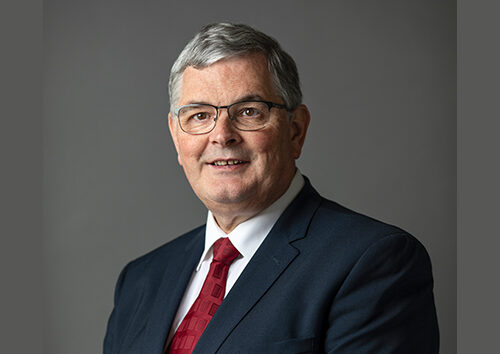11 July 2011 Silver Spring, Maryland, United States [Bettina Krause, Ansel Oliver/ANN] This month’s formal conversation between leaders of the Mennonite World Conference and the General Conference of Seventh-day Adventists offered the opportunity for both groups to share their beliefs and dispel misunderstandings in a receptive forum, leaders of both groups said.
“By sitting down and talking with those of other faiths, we gain a deeper understanding of who they are,” said John Graz, Public Affairs and Religious Liberty director for the Adventist Church, whose department organized the June 28 to July 1 event at its world headquarters.
In a joint statement, leaders from both faiths said each shares “a desire to recover the authenticity and passion of the New Testament church, a similar understanding of Christian history, and a strong commitment to be followers of Jesus in their personal lives and in their corporate witness to the world.”
The Mennonite World Conference represents some 99 Mennonite and Brethren in Christ national churches worldwide, with a combined membership of some 1.6 million. Mennonites, who trace their roots to the Anabaptist branch of the 16th Century Reformation, are today recognized for their emphasis on peacemaking, their stance as conscientious objectors, and their involvement in dispute resolution, both at local and international levels.
The roughly 500-year-old communion faced some of the most severe persecution of Christians; last year the Lutheran World Federation even apologized for its persecution of Anabaptists, the root of the Mennonites.
The Adventist Church rose following the Second Great Awakening in the United States in the 19th century, and it now has a world membership of some 17 million.
Danisa Ndlovu, president of the Mennonite World Conference, expressed his thanks to the Adventist Church for hosting the conversation.
“When you see people from a distance you can’t say that you know them,” said Ndlovu, who also serves as bishop of the Brethren in Christ Church in Zimbabwe. “But it is different when you sit down with someone and exchange ideas — now we can say ‘We know you.'”
Still, further conversations will pick up were this meeting left off. Future talks would explore Sabbath, its theology, and the Second Coming, said William Johnsson, director of the Adventist Church’s inter-faith relations. “They believe in the Second Coming but it doesn’t have the focus we put on it,” Johnsson said.
Adventists hold their Sabbath day of worship from Friday sundown to Saturday sundown, as opposed to Mennonite and other Christian groups who worship on Sunday. The Mennonite delegation requested an opportunity to experience how Adventists keep Sabbath, and they stayed an extra day to attend a Friday evening supper and a church service on Saturday, Johnsson said.
Mennonite leaders at the meeting said they were interested to learn of the Adventist Church’s focus and commitment of resources to issues of healthful living and religious freedom. The Adventist Church incorporates health as part of its faith and operates the largest integrated network of Protestant hospitals worldwide. The Adventist Church also launched in 1893 what is now the International Religious Liberty Association, a non-sectarian organization dedicated to promoting freedom of conscience.
Mennonite leaders also identified the structure of their global communion as inverted compared to the Adventist Church. Though based in Strasbourg, France, Mennonites congregations are autonomous, which generates more diversity, said Robert Suderman, former general secretary of the Mennonite Church Canada, who co-chaired the meeting.
Suderman said structures of both communions “have their pros and cons.” In the Adventist Church, theology and direction is offered at the General Conference world headquarters and then trickles down through the rest of its five levels of administration: divisions, unions, conferences and local congregations.
The administrative structure may have been responsible for some of the Adventist Church’s success, Suderman said.
“Adventists have grown very quickly in 150 years and we haven’t,” he said. “That’s probably an issue we want to investigate in the next round of conversations.”
The two faiths are planning another conversation next year in Switzerland. [tedNEWS]
tedNEWS Staff: Miroslav Pujic, director; Deana Stojkovic, editor
119 St Peter’s Street, St Albans, Herts, AL1 3EY, England
E-mail: [email protected]
Website: www.ted-adventist.org
tedNEWS is an information bulletin issued by the communication department of the Seventh-day Adventist Church in the Trans-European Division.
You are free to re-print any portion of the bulletin without need for special permission. However, we kindly request that you identify tedNEWS whenever you publish these materials.


